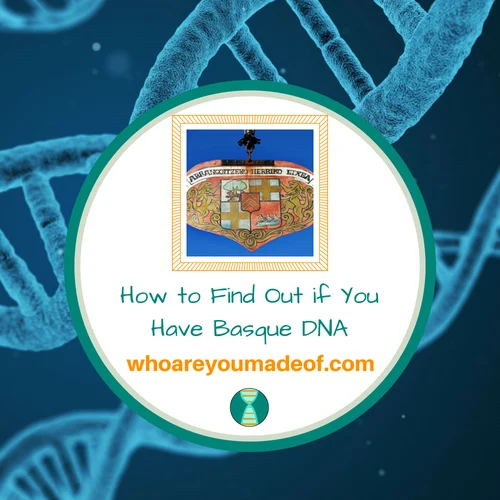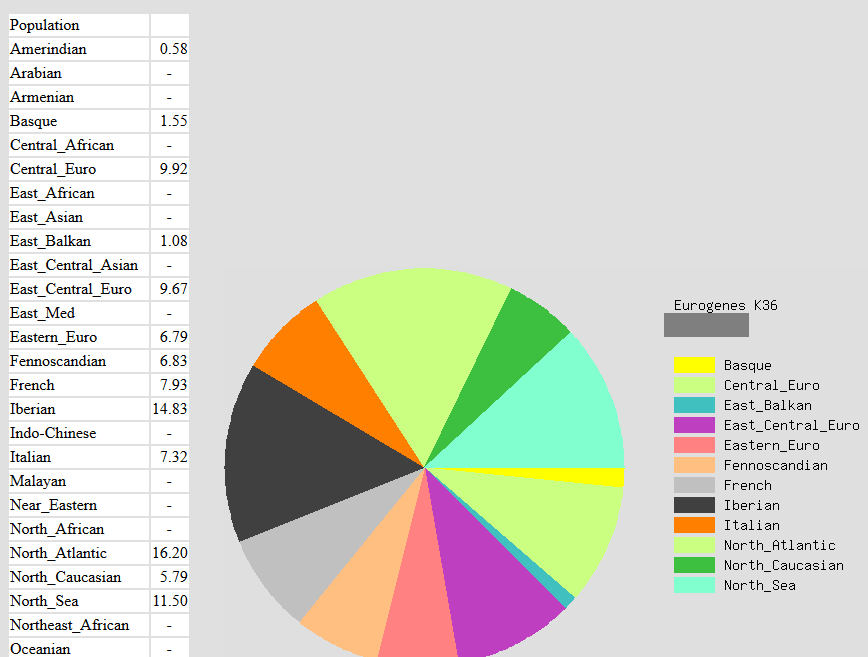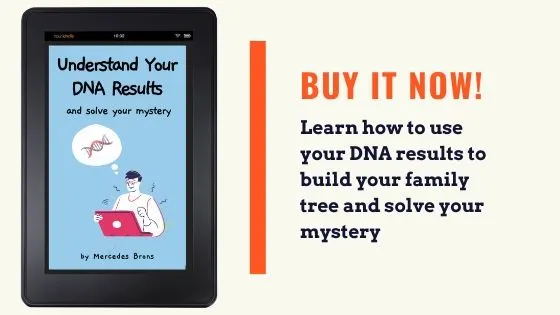Whether or not you know for sure that you have Basque ancestry, you might wonder if there is a way to prove it using DNA. In this post, you'll learn how to find out whether you have Basque DNA.

Speakers of Europe's oldest surviving language, the Basque people are the subject of much curiosity.
Does a DNA test check for Basque ancestry?
Wouldn't it be great if you could just spit in a tube and find out where all of your ancestors were from? In some ways, this is actually possible - but with some important limitations.
DNA testing companies have been able to take DNA samples from people with deep roots in many regions of the world and create a reference sample to which they can compare your DNA.
After comparing your DNA with the reference sample, the company can then tell you - with fairly high certainty - where your ancestors lived going back hundreds of years ago.
This is great, you might be thinking. And it is - it's quite amazing!
The only problem is that DNA testing companies haven't made reference samples for every region of the world. Some areas are included in more broad categories, and unfortunately, this is the case for the Basque DNA ethnicity.
Update: Ancestry DNA released a summer-2018 update to a limited number of test takers, and Basque is one of the new regions added to ethnicity estimates. A helpful reader was nice enough to share her updated Basque result with me, and I am excited to see this new region.
So, the answer to the question in the sub-heading is this: All DNA testing companies could test for Basque ancestry, but as of right now, the only DNA test that tests for the Basque region is Ancestry DNA.
Note: Even though most companies don't offer a "Basque DNA test", at the end of this post, I'll tell you what you can do to find out if you have Basque DNA. And the best part is, if you have already taken a DNA test, it's completely free.
Why is there no Basque DNA test?
As far as scientists have been able to demonstrate, the Basque people have been living continuously in the same area, in relative genetic isolation, for at least 5,000 years, and perhaps as long ago as 7,000 years.
For thousands of years, the Basque people were able to resist, defeat, or fend off invading and warring tribes from other parts of Europe.
As Spain grew as a world power in the 1500's, however, the ancient Basque region gradually came under Spanish rule - and is still under Spanish rule today, though they are considered to be relatively autonomous.
There is substantial evidence that people who have deep Basque roots have unique patterns in their DNA that can be distinguished from those in the DNA of other groups of people who live on the Iberian Peninsula,.
With this knowledge, it should be possible to find a group of people native to the Basque region who would be willing to submit their DNA to form a reference sample profile to help other people learn about their own Basque roots.
For now, it doesn't appear as if any of the major DNA testing companies (aside from Ancestry DNA) are working on developing a Basque profile, but I really do hope they would consider doing so.
The great thing is that DNA testing companies are not the only ones who spend time working on algorithms for understanding ethnicity. T
here are independent research projects all around the world, and some of their data is made available to the public in the form of an "admixture calculator", which we can find on Gedmatch.com.
What is the best admixture calculator for Basque on Gedmatch?
Admixture, used in the context of genetic genealogy, describes the "mixing" of peoples from different ethnic backgrounds.
So, when we talk about an admixture calculator, we are referring to a calculator that can tell someone all of the ethnicity regions that their DNA has been "mixed" with, for lack of a better term.
There are several admixture projects on Gedmatch, and most of the projects have several different calculator models that anyone (who has done a DNA test and has uploaded their DNA to the site) can use to get more insight into their ethnicity, or ancestry.
In order to give you an example of how this works, I decided to run my own DNA through the Eurogenes K36 Admixture Proportions calculator on Gedmatch:

The calculator shows I only have 1.55% Basque ancestry. I have 6% Iberian on Ancestry DNA, so it seems reasonable that I might have very distant Basque ancestors.
This Basque result was curious, so I ran the DNA of my mother, father, grandmother, and two great-uncles through the calculator - just to see if I could track down where my Basque came from:
- My dad has 4.02% (his dad's brother has 1.84%)
- My paternal grandmother has 3.55%
- My paternal grandmother's brother has 4.80%
- My mother has 2.45%
It's tough to say whether or not the Basque that showed up on my results is statistical noise, since there always is that chance on very small percentages. It does look like there is enough in my family to warrant taking a second look at the idea that we have actual Basque ancestors.
How can you tell if you have Basque DNA?
If you haven't already done a DNA test, the first step would be to decide which company you would like to use for your DNA testing. I generally recommend Ancestry DNA, especially since they have added a new Basque region to their ethnicity results.
I feel very confident in their ethnicity results, they test for more regions and migrations than any other company, and they have the biggest commercial DNA database for finding DNA matches.
You can get your Ancestry DNA kit by clicking on the following link, though I will receive a very small commission at no extra cost to you, so thank you for using the link: Discovery the story AncestryDNA® can tell
.
Once you have done your DNA test and received your results, you can download your DNA, upload it to Gedmatch, and start using the admixture calculators (specifically, the Eurogenes K36 Admixture Proportions calculator) on Gedmatch to find your Basque DNA.
Conclusion
I hope that this post gave you some idea about whether Basque DNA can be found in a DNA test, and how to find your Basque DNA on your own.
If you have any questions about anything that you read in this post, or would like to share your own experience researching your Basque roots, I would love to hear from you in the discussion below.
Thanks for stopping by!


pamela grove
Tuesday 11th of April 2023
i have basque blood very rare apparently, did dna test with ancestry.com but nothing showed up. how can i check further
Arnold Fiore
Wednesday 14th of September 2022
My DNA Ancestry test revealed I am 13% Basque ancestry, exactly what does that mean as far as past generation type? Does that mean my great great great grandparent was 100% Basque?
Yusimith
Thursday 19th of May 2022
I did a DNA test on ancestry, it came 46% Spain, Basque 18%, my grandfather from my father side was born in Spain but my mother parent is unknow, I am so confuse about, how to find out why Basque came from on my DNA results
Yusimith
Thursday 19th of May 2022
I did a DNA test on ancestry, it came 46% Spain, Basque 18%, my daughter father was born in Spain but my mother parent is unknow, I am so confuse about, how to find out why Basque came from on my DNA results
Yolanda
Tuesday 26th of April 2022
So I got my red silts and it said 100%basque but my mom’s was 99% basque 1% northern Spain so basically basque and my dad was 94% basque 4%northern Spain and 2%something else. Initially mine was less then a 100% but then it changed. Kind of confusing.